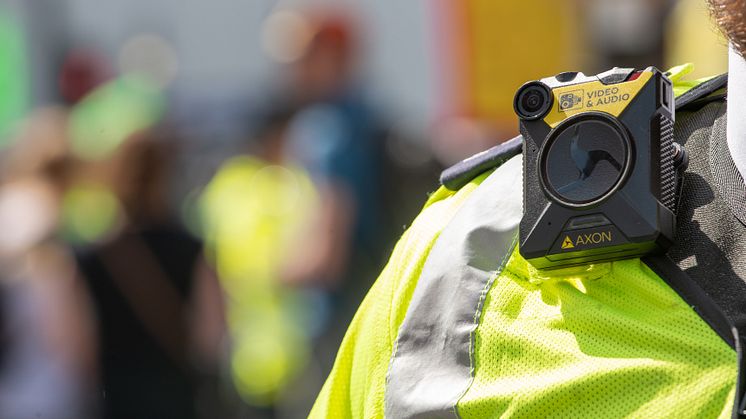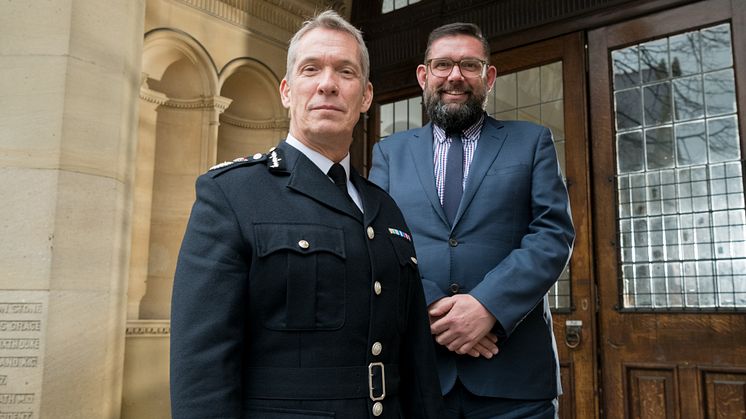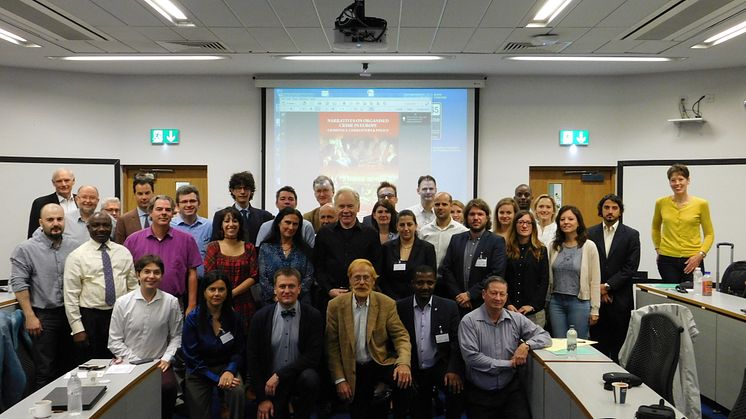
Press release -
Expert evidence given in face of modern policing debate
A Northumbria University criminologist has contributed expert evidence to a debate around the use of facial recognition technology in policing.
Dr Diana Miranda’s research focuses on the impact of technologies such as biometrics, which analyse physical or behavioural human characteristics to digitally identify a person.
She was asked to contribute her findings as part of an inquiry currently being carried out by the Scottish Parliament’s Justice Sub-Committee on Policing, into the use of facial recognition technology in policing in Scotland.
Her recent study exploring the use of body-worn cameras by police officers and their views on the use of facial recognition was of particular interest to the inquiry, and was submitted as evidence during a recent hearing. It will also form part of the Committee’s final report.
In 2016 Police Scotland announced plans to introduce facial recognition technology in its crime-fighting work, as part of its Policing 2026 strategy.
The force has not piloted facial recognition technology in a live setting yet, but does use retrospective facial technology, such as uploading images to the UK Police National Database which has a ‘facial search’ facility.
The purpose of the Sub-Committee’s inquiry is to consider how facial recognition is currently used by Police Scotland and whether that use is lawful, ethical, proportionate and transparent.
Dr Miranda is one of a number of experts who are contributing their findings in this area to help shape the debate.
Speaking about her involvement she said: “There is an urgent need for reflection on the potential social harms that emerge from the use of live facial recognition by law enforcement.
"Such reflection demands critical, empirical investigation that explores the impacts of using this technology on our societies.
"It is vital that we listen to different voices, namely different members of our community and policing professionals.
"Hopefully my research findings will reveal different concerns raised by front-line police officers. In particular, how they questioned if this technology is really needed and some of the implications of using it from an operational perspective.”
Academics from Northumbria University are taking part in world-leading research through the University’s Centre for Crime and Policing.
This research aims to enhance understanding and practice in relation to some of the key global challenges of the 21st Century, including transnational organised crime, the use of technology, social harm, forensics, and law enforcement and criminal justice cooperation.
Find out more about the work of the Centre for Crime and Policing.
Read Dr Miranda's submission to the Scottish Parliament’s Justice Sub-Committee on Policing's inquiry.
Topics
Categories
Northumbria is a research-rich, business-focused, professional university with a global reputation for academic excellence. To find out more about our courses go to www.northumbria.ac.uk
If you have a media enquiry please contact our Media and Communications team at media.communications@northumbria.ac.uk or call 0191 227 4604.











